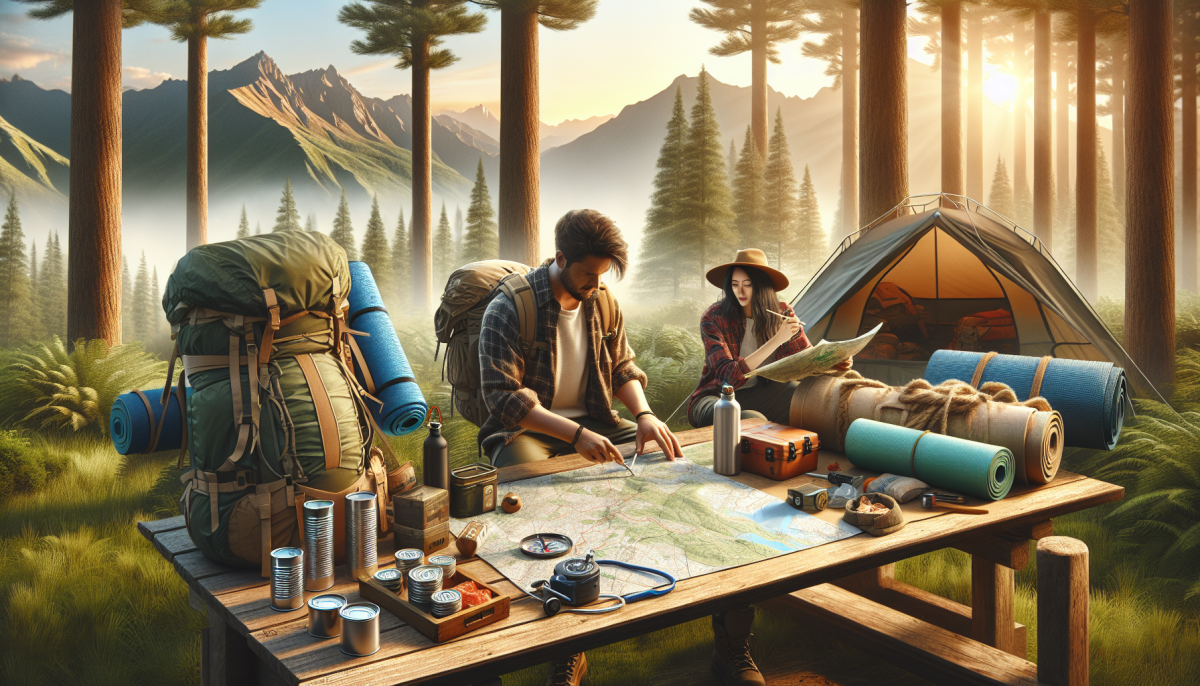Next, focus on the essentials: a sturdy tent, a reliable sleeping bag, and a quality sleeping pad. Your tent should be suited for the season and weather conditions you expect. Look for one that is easy to set up and provides adequate ventilation. A sleeping bag should be rated for the temperatures you anticipate encountering, while a sleeping pad offers insulation and comfort, helping you get a good night’s sleep under the stars.
Don’t forget about cooking and food supplies. A portable stove, cooking utensils, and appropriate food storage are critical for enjoying hot meals. Choose a stove that is easy to set up and matches your cooking style. Additionally, pack lightweight, non-perishable food items that are easy to prepare, ensuring you have enough nutrition for your trip.
Lastly, consider your personal needs and preferences when selecting gear. Think about clothing suitable for different weather conditions, first aid supplies, and any recreational items you may want, like a camera or journal. Each camper is unique, and customizing your gear selection can greatly enhance your outdoor experience!
Planning Your Campsite Location
When it comes to outdoor camping, one of the most important decisions you'll make is choosing the right campsite location. A well-thought-out spot can enhance your experience, while a poor choice can lead to discomfort or safety risks. Start by looking for a flat area away from any potential hazards, such as falling branches or flooding. Ideally, your camping site should be close to water sources for easy access, but be mindful of staying a safe distance from the water’s edge to avoid unexpected rises in water level.
Consider the direction of the sun when selecting your site. A location that receives morning sunlight can help warm your tent early in the day, while a spot that stays shaded in the afternoon can keep you cooler during hot summer months. Keep in mind the prevailing winds too; setting up your tent in a location that has some natural windbreaks, like trees or hills, can provide shelter and create a more comfortable atmosphere.
Wildlife activity is another crucial factor to think about. Set up camp away from animal trails and food sources to minimize encounters with wildlife. It's best to pitch your tent at least 200 feet from water sources to prevent drawing animals toward your campsite. Additionally, ensure there's enough distance between your cooking area and sleeping area to avoid attracting unwanted critters while preparing meals.
Finally, consider the social aspect of your campsite. If you’re camping with friends or family, look for a location that allows everyone to gather comfortably around a fire pit or picnic area. If you need some quiet time, try to find a more secluded spot away from larger groups. Balancing privacy and social space will help create a more enjoyable camping experience for everyone involved.
Packing Food and Supplies Wisely
When selecting perishable items, consider using a cooler with ice packs to keep items fresh. Fruits, vegetables, and dairy products can all spoil quickly if not stored properly. Prepping some foods at home can also save time and make cooking easier while camping; consider chopping vegetables or marinating meats ahead of time. Remember to pack food in airtight containers to avoid both spoilage and attracting unwanted wildlife.
In addition to food, don't forget to pack necessary cooking supplies. A compact cooking set, utensils, a can opener, and biodegradable soap are all essential items to include. If you plan on cooking over a campfire, bring along grill grates or skewers for easier meal preparation. An outdoor cooking setup not only enhances the camping experience but also allows for delicious meals under the stars.
Finally, keep in mind the importance of packing out what you pack in. Bring along garbage bags to collect food waste, wrappers, and any other trash. Leaving no trace is not only good for the environment but also ensures that future campers can enjoy the beauty of nature just as you did. By planning and packing wisely, you'll be able to focus on enjoying your time outdoors without the stress of food and supply management.
Safety Tips for Outdoor Adventures
When you embark on outdoor adventures, safety should always be your top priority. Whether you are hiking, camping, or simply exploring nature, being prepared can make all the difference. Here are some essential safety tips to keep in mind.
First, always inform someone about your plans. Let a friend or family member know where you will be going and when you expect to return. This way, if something goes wrong, someone will know to look for you. Additionally, consider investing in a portable charger or a power bank for your phone. Even if you're heading into the wild, a charged phone can be a lifesaver in case of emergencies.
Next, familiarize yourself with the area you'll be exploring. Study the map beforehand and keep a physical copy with you, as GPS may not always work in remote locations. Understand the terrain, potential hazards, and available resources like water and emergency services. Knowing your surroundings can help you make better decisions during your adventure.
Lastly, pack a well-stocked first aid kit. Accidents can happen, whether it’s a minor scrape or a more serious injury. Include essentials like band-aids, antiseptic wipes, and adhesive tape. Also, consider adding items like insect repellent and sunscreen to protect against bites and sunburns. Being equipped for minor injuries can help you stay focused on enjoying your adventure!

